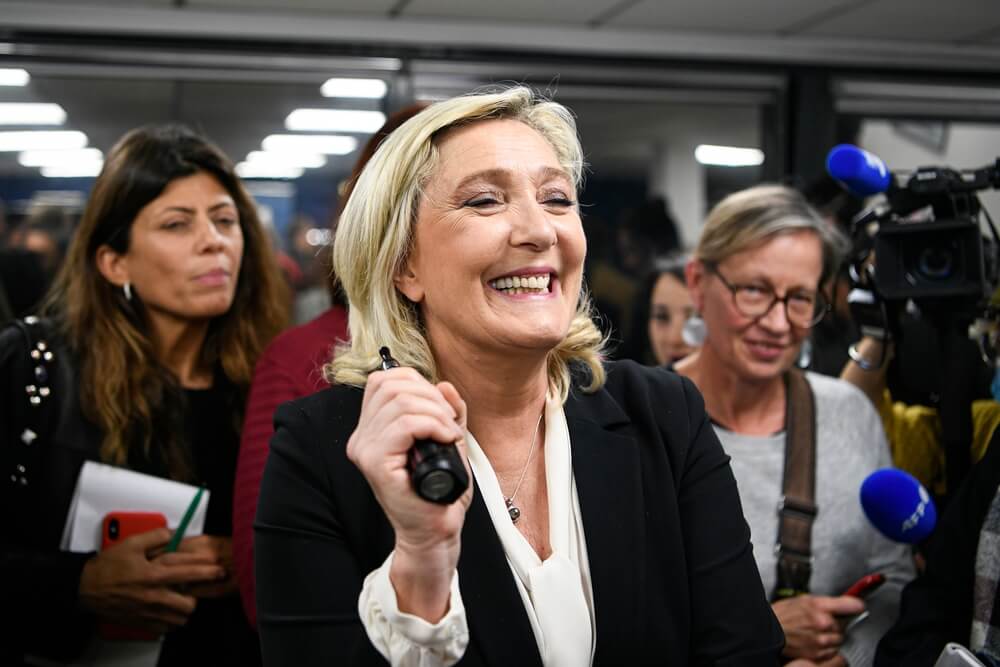Vladimir Putin has high hopes for today's elections in the eastern German states of Thuringia and Saxony, as well as in Brandenburg on September 22.
The growth of populist and extremist policies in those states provides hope for the Kremlin to regain its influence in the largest European economy and one of the most influential EU and NATO member states.
A favourable result, particularly the victory of his favourites in Germany, will also open the door for the Kremlin's further political and ideological advance in Europe.
Following the fall of the Berlin Wall, Russia left behind a massive clandestine infrastructure in Germany that it hoped to exploit should favourable conditions arise again.
After the withdrawal, the Soviets left the East Germans exposed to their propaganda, as well as hundreds, if not thousands, of sleeper agents and spies.
Over time, Russia's spies and agents had clandestine, but not hidden, assistance, enabling them to advance into the German political and business circles.
It is possible that those East German spies and Russian agents have facilitated Germany's alleged wilful excessive dependence on Russia's energy.
Ideological battlefield
Over the past two to three decades, Russia has actively recruited and cultivated the German political and business elite, many of whom the USSR might have gathered in Germany years ago.
Germany is now the Kremlin's primary European ideological battlefield. Having subverted and submitted Germany, the Kremlin will go after France and Great Britain with open hostility.
Russia views the regional elections in eastern Germany as a crucial opportunity to undermine European political support for Ukraine, despite their unfavourable timing.
 Russia was unable to establish a pro-Russian political block in France, although at one point the victory of Marine Le Pen and her National Rally seemed inevitable
Russia was unable to establish a pro-Russian political block in France, although at one point the victory of Marine Le Pen and her National Rally seemed inevitable
Moscow had similar expectations recently in France in the elections for the European Parliament and soon after in the extraordinary parliamentary elections, but such expectations failed miserably.
Russia was unable to establish a pro-Russian political block in France, although at one point the victory of Marine Le Pen and her National Rally seemed inevitable.
It was a significant setback to Putin's plan, even though he admitted that the "ground" in France for Russia's subversion was unreliable and unfruitful.
Russia is disheartened by its failure in France, but it acknowledges that France has not experienced Russia's decades-long occupation, a reality Germany has experienced.
Therefore, it is evident that subverting French politicians and voters is more challenging, as Russia's ideological influence, as well as its spying and other clandestine capacities, are significantly smaller in France compared to those established in Germany.
One of the last chances for Moscow
Vladimir Putin is counting on Germany switching to his side following the probable victory of various left-wing and right-wing populist parties, in particular the ultra-right Alternative for Germany (AfD), a political party with proven links to Russia.
There is a lot of reason for this outcome, since pre-election surveys showed the AfD's lead in Thuringia and a close battle with the CDU for first place in Saxony.
The AfD's success would be a strong boost to Putin's ambitions to shake up the political scene in the most influential European state
Their success would be a strong boost to Putin's ambitions to shake up the political scene in the most influential European state and bring an ideological rift into Europe's previously compact support for Ukraine.
The regional elections in Germany are one of the last opportunities to realise such expectations. France and Great Britain only recently held parliamentary elections, and there are another three years before the next French presidential elections, for example.
Before then, Germany will hold crucial parliamentary elections in a year, from which a new government will emerge. To that extent, today's elections in the two eastern states, as well as in three weeks in Brandenburg, are more than important milestones for the Kremlin, which expects the return of its influence at the centre of political and economic Europe.